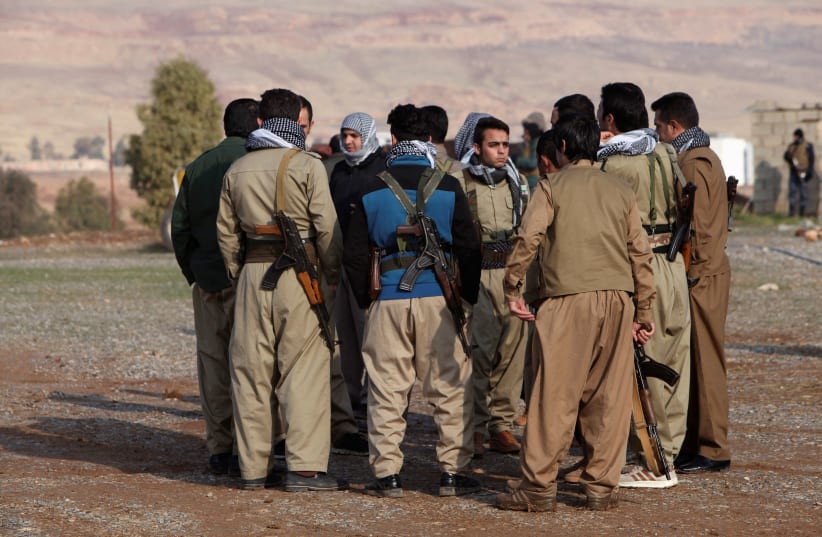A Related Video You May Like:
The PDKI’s leader, Mustafa Hijri, was in Washington on June 11 where he addressed the Council on Foreign Relations and held other meetings.“In our meetings in the United States we discussed our views on Iran in general and Iranian Kurdistan in particular, and exchanged our thoughts,” Hijri said. “However, I think the Americans have not come up with a clear agenda to assist the Iranian opposition yet – or at least they did not discuss it with us.”The PDKI and other groups that oppose the regime hope that the administration of US President Donald Trump will increase support for them amid the attempt to ramp up sanctions.Secretary of State Mike Pompeo has been outspoken in opposing the IRGC and the regime’s crackdown. “We condemn the government’s same futile tactics of suppression,” he said on June 27. “The people of Iran are tired of the corruption, injustice and incompetence from their leaders.”
Iranian Kurds increase campaign against Tehran regime
As Iran suffers from economic stagnation, the country is ripe for more sustained protests and armed opposition to the regime.
